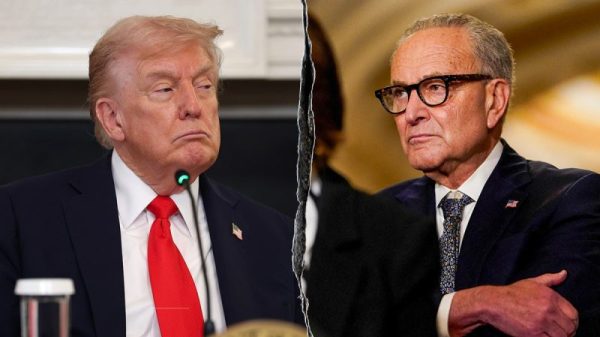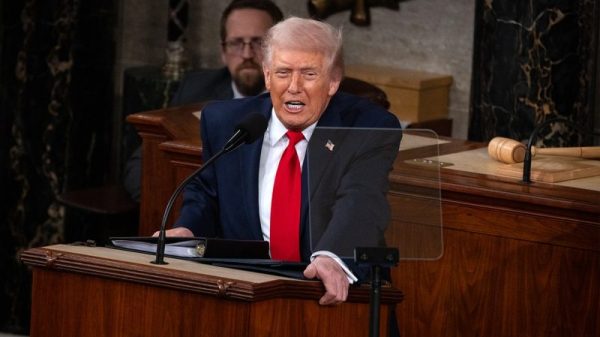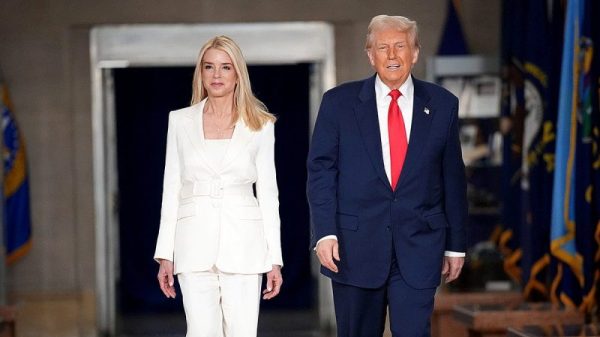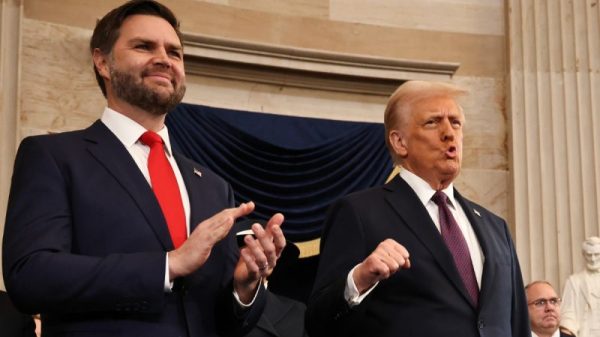Democratic Sen. Joe Manchin III of West Virginia announced Friday that he has changed his party registration to independent, fueling speculation he could run for office again in November after announcing his retirement last year.
“My commitment to do everything I can to bring our country together has led me to register as an independent with no party affiliation,” Manchin wrote on X.
Manchin did not immediately say anything about his political plans. But the move allows him to possibly reconsider his plan to not seek reelection — or to run for governor, a job he previously held.
Aug. 1 is the deadline for independent candidates to file for office in West Virginia. Manchin was facing a Saturday deadline to register as an independent and still have a chance to file as an independent candidate this election.
The centrist senator announced in November 2023 that he would not run for another term, handing Republicans a likely pickup seat in solidly red West Virginia. The GOP nominee for the seat is the state’s governor, Jim Justice.
For months, Manchin flirted with running for president as an independent or third-party candidate, worrying Democrats who anticipated a close rematch between President Biden and former president Donald Trump. But Manchin announced in February that he would “not be involved in a presidential run” this year.
Speculation has picked up in recent weeks that Manchin may be mulling a return to the governor’s office, though he reportedly said this week he would not enter the race. He said he is supporting the Democratic nominee, Steve Williams.
If Manchin decides to run for Senate again, he could have a fighting chance in a race that otherwise favors the GOP. CNN reported in March that Senate Majority Leader Charles E. Schumer (D-N.Y.) has talked with Manchin about running for reelection as an independent. At the time, Manchin said he did not expect to do so.
Democrats face a tough map as they try to preserve their narrow Senate majority in November, largely playing defense in states that Trump has carried.
Manchin joins three other members of the Senate who identify as independents: Sens. Bernie Sanders (Vt.), Angus King (Maine) and Kyrsten Sinema (Ariz.), who each caucus with Democrats. A Manchin spokesperson said he will continue to caucus with Democrats.
Manchin has long lamented partisanship in Congress and political extremism.
“Today, our national politics are broken and neither party is willing to compromise to find common ground,” Manchin said in a statement on his decision to register as an independent.
The political winds in West Virginia have shifted as Manchin has represented it in the Senate.
In January 2017, 44 percent of registered voters in West Virginia were registered Democratic, compared with 31 percent registered Republican and 21 percent registered with no party, according to the secretary of state’s office. As of April 2024, it is nearly reversed, with 30 percent being registered Democratic and 40 percent being registered Republicans (25 percent are registered with no party).
Though Democrats have not won a presidential election in West Virginia since 1996, and it is the second most Republican state according to Cook Partisan Voting Index, registered Republicans have only outnumbered registered Democrats since February 2021.
Lenny Bronner contributed to this report.
Democratic Sen. Joe Manchin III of West Virginia announced Friday that he has changed his party registration to independent, fueling speculation he could run for office again in November after announcing his retirement last year.
“My commitment to do everything I can to bring our country together has led me to register as an independent with no party affiliation,” Manchin wrote on X.
Manchin did not immediately say anything about his political plans. But the move allows him to possibly reconsider his plan to not seek reelection — or to run for governor, a job he previously held.
Aug. 1 is the deadline for independent candidates to file for office in West Virginia. Manchin was facing a Saturday deadline to register as an independent and still have a chance to file as an independent candidate this election.
The centrist senator announced in November 2023 that he would not run for another term, handing Republicans a likely pickup seat in solidly red West Virginia. The GOP nominee for the seat is the state’s governor, Jim Justice.
For months, Manchin flirted with running for president as an independent or third-party candidate, worrying Democrats who anticipated a close rematch between President Biden and former president Donald Trump. But Manchin announced in February that he would “not be involved in a presidential run” this year.
Speculation has picked up in recent weeks that Manchin may be mulling a return to the governor’s office, though he reportedly said this week he would not enter the race. He said he is supporting the Democratic nominee, Steve Williams.
If Manchin decides to run for Senate again, he could have a fighting chance in a race that otherwise favors the GOP. CNN reported in March that Senate Majority Leader Charles E. Schumer (D-N.Y.) has talked with Manchin about running for reelection as an independent. At the time, Manchin said he did not expect to do so.
Democrats face a tough map as they try to preserve their narrow Senate majority in November, largely playing defense in states that Trump has carried.
Manchin joins three other members of the Senate who identify as independents: Sens. Bernie Sanders (Vt.), Angus King (Maine) and Kyrsten Sinema (Ariz.), who each caucus with Democrats. A Manchin spokesperson said he will continue to caucus with Democrats.
Manchin has long lamented partisanship in Congress and political extremism.
“Today, our national politics are broken and neither party is willing to compromise to find common ground,” Manchin said in a statement on his decision to register as an independent.
The political winds in West Virginia have shifted as Manchin has represented it in the Senate.
In January 2017, 44 percent of registered voters in West Virginia were registered Democratic, compared with 31 percent registered Republican and 21 percent registered with no party, according to the secretary of state’s office. As of April 2024, it is nearly reversed, with 30 percent being registered Democratic and 40 percent being registered Republicans (25 percent are registered with no party).
Though Democrats have not won a presidential election in West Virginia since 1996, and it is the second most Republican state according to Cook Partisan Voting Index, registered Republicans have only outnumbered registered Democrats since February 2021.
Lenny Bronner contributed to this report.





















